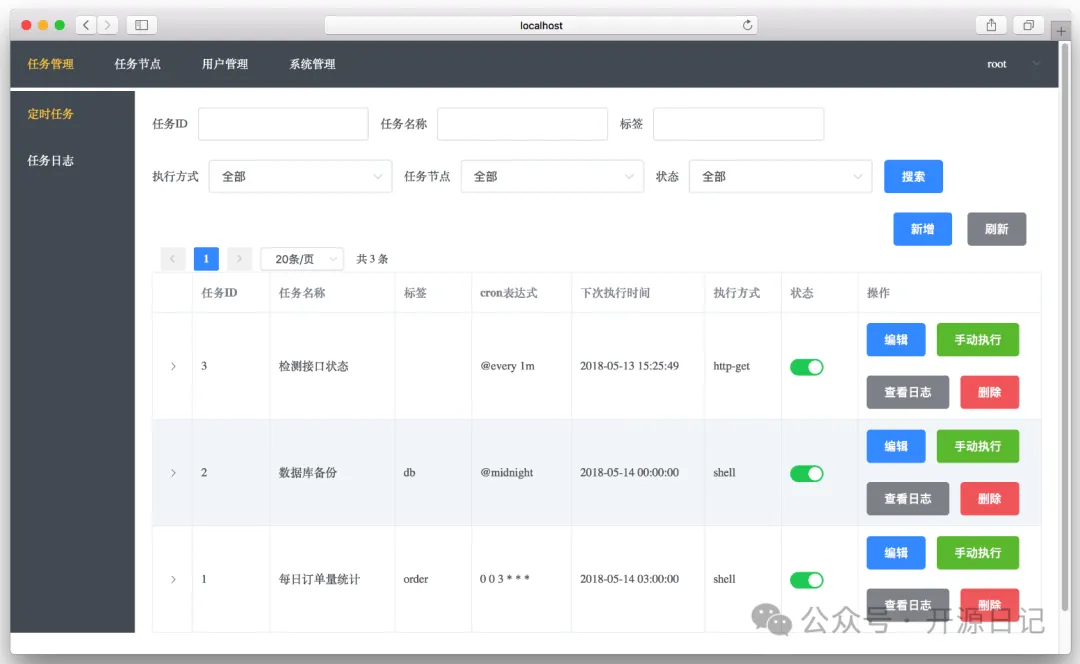前言
最近一个需求,需要在 Vue 项目中加入 含有iframe 的页面,同时在路由切换的过程中,要求iframe的内容 不会被刷新 。一开始使用了Vue自带的keep- alive发现没有用,于是自己研究了一下解决方案。。。。。。
Vue的keep-alive原理
要实现对保持iframe页的状态。我们先搞清楚为什么Vue的keep-alive不能凑效。keep-alive原理是把组件里的节点信息保留在了 VNode (在内存里),在需要渲染时候从Vnode渲染到真实DOM上。iframe页里的内容并不属于节点的信息,所以使用keep-alive依然会重新渲染iframe内的内容。 另外 ,我也尝试有过想法:如果把整个iframe节点保存起来,然后需要切换时把它渲染到目标节点上,能否实现iframe页不被刷新呢?————也是不可行的,iframe每一次渲染就相当于打开一个新的网页窗口,即使把节点保存下来,在渲染时iframe页还是刷新的。
实现的思路
既然保持iframe页里的状态很难实现,在这个时候我想到了一个别的方法。能否在Vue的route-view节点上动点手脚?使得在切换 非iframe页 的时候使用Vue的路由,当切换 iframe页 时则使用 v-show 切换显示与隐藏,使得iframe节点 一直不被删除 ,这样就能保持iframe的状态了。
我们简陋的实现一下以上的效果,上代码:
入口main.js:
import Vue from \'vue/dist/vue.js\'
import App from \'./App.vue\'
import VueRouter from \'vue-router\';
const Index = { template: \'<div>Index</div>\' }
const routes = [
// 含有iframe的两个页面
{
path: \'/f1\',
name: \'f1\'
},
// 含有iframe的两个页面
{
path: \'/f2\',
name: \'f2\'
},
{
path: \'/index\',
component: Index
}
]
const router = new VueRouter({
routes
});
Vue.use(VueRouter);
new Vue({
render: h => h(App),
router
}).$mount(\'#app\')
根组件:
<template>
<div id=\"app\">
<div class=\"nav\">
<router-link class=\"router\" to=\"/f1\">Go to F1</router-link>
<router-link class=\"router\" to=\"/f2\">Go to F2</router-link>
<router-link class=\"router\" to=\"/index\">Go to Index</router-link>
</div>
<keep-alive>
<!-- Vue的路由 -->
<router-view></router-view>
</keep-alive>
<!-- iframe页面 -->
<f1 v-show=\"$route.path == \'/f1\'\"></f1>
<f2 v-show=\"$route.path == \'/f2\'\"></f2>
</div>
</template>
<script>
import F1 from \'./components/f1\';
import F2 from \'./components/f2\';
export default {
name: \'app\',
components: {
F1,
F2
},
}
</script>
上面代码简单来说,关键的地方首先是main.js初始化路由时,对iframe页不填写属性component,这样页面就是空白的。然后在 router-view 节点旁边渲染iframe页组件,使用$route.path判断当前路由的指向,控制iframe页的 显示与隐藏 。
上面代码简单的解决了问题,但还有一些地方可以优化:
-
iframe页在根节点App.vue一渲染时 已经渲染 了,对此iframe页可以做成 懒加载 ,只有在进入过相应页面了触发渲染,并且渲染过之后就用v-show切换显示与隐藏
每当增加一个iframe页都要增加一段的组件引入注册和调用的代码。比较 繁琐 。我们目标应该做到每增加一个iframe页,只需要添加尽量少的代码。这里思路是:
-
在路由配置中定义一个属性,用于 标识该页面是否含有iframe 的页面
根据标识,iframe页组件 自动动态注册和渲染 ,无需再手写额外的代码
router-view和iframe切换的逻辑封装成 新组件 ,用它 替代原有的router-view
我们先修改router的配置,增加一个属性名iframeComponent,用于标识是否包含iframe,该属性的值是组件文件引用
main.js:
import F1 from \'./components/f1\';
import F2 from \'./components/f2\';
const routes = [
{
path: \'/f1\',
name: \'f1\',
iframeComponent: F1 // 用于标识是否含有iframe页
},
{
path: \'/f2\',
name: \'f2\',
iframeComponent: F2 // 用于标识是否含有iframe页
},
{
path: \'/index\',
component: { template: \'<div>Index</div>\' }
}
]
const router = new VueRouter({
routes // (缩写)相当于 routes: routes
});
new Vue({
render: h => h(App),
router
}).$mount(\'#app\')
接下来我们第二步和第三步结合在一起,封装新的组件iframe-router-view.vue:
<template>
<div>
<!-- Vue的router-view -->
<keep-alive>
<router-view></router-view>
</keep-alive>
<!-- iframe页 -->
<component
v-for=\"item in hasOpenComponentsArr\"
:key=\"item.name\"
:is=\"item.name\"
v-show=\"$route.path === item.path\"
></component>
</div>
</template>
<script>
import Vue from \'vue/dist/vue.js\'
export default {
created() {
// 设置iframe页的数组对象
const componentsArr = this.getComponentsArr();
componentsArr.forEach((item) => {
Vue.component(item.name, item.component);
});
this.componentsArr = componentsArr;
// 判断当前路由是否iframe页
this.isOpenIframePage();
},
data() {
return {
componentsArr: [] // 含有iframe的页面
}
},
watch: {
$route() {
// 判断当前路由是否iframe页
this.isOpenIframePage();
}
},
computed: {
// 实现懒加载,只渲染已经打开过(hasOpen:true)的iframe页
hasOpenComponentsArr() {
return this.componentsArr.filter(item => item.hasOpen);
}
},
methods: {
// 根据当前路由设置hasOpen
isOpenIframePage() {
const target = this.componentsArr.find(item => {
return item.path === this.$route.path
});
if (target && !target.hasOpen) {
target.hasOpen = true;
}
},
// 遍历路由的所有页面,把含有iframeComponent标识的收集起来
getComponentsArr() {
const router = this.$router;
const routes = router.options.routes;
const iframeArr = routes.filter(item => item.iframeComponent);
return iframeArr.map((item) => {
const name = item.name || item.path.replace(\'/\', \'\');
return {
name: name,
path: item.path,
hasOpen: false, // 是否打开过,默认false
component: item.iframeComponent // 组件文件的引用
};
});
}
}
}
</script>
-
该组件主要做的是根据main.ja里的routes生成一个只含有iframe页的数组对象。
watch上监听$route,判断当前页面在iframe页列表里的话就设置hasOpen属性为true,渲染该组件
用v-show=\”$route.path === item.path\”切换iframe页的显示与隐藏。
逻辑并不复杂,这里就不多赘述。
结语
大家如果有更好的实现方法,或者我上面还有什么需要更正的错误,欢迎交流。 上面demo的代码放在了个人github上 https://github.com/jmx164491960/vue-iframe-demo
以上就是本文的全部内容,希望对大家的学习有所帮助,也希望大家多多支持。










暂无评论内容